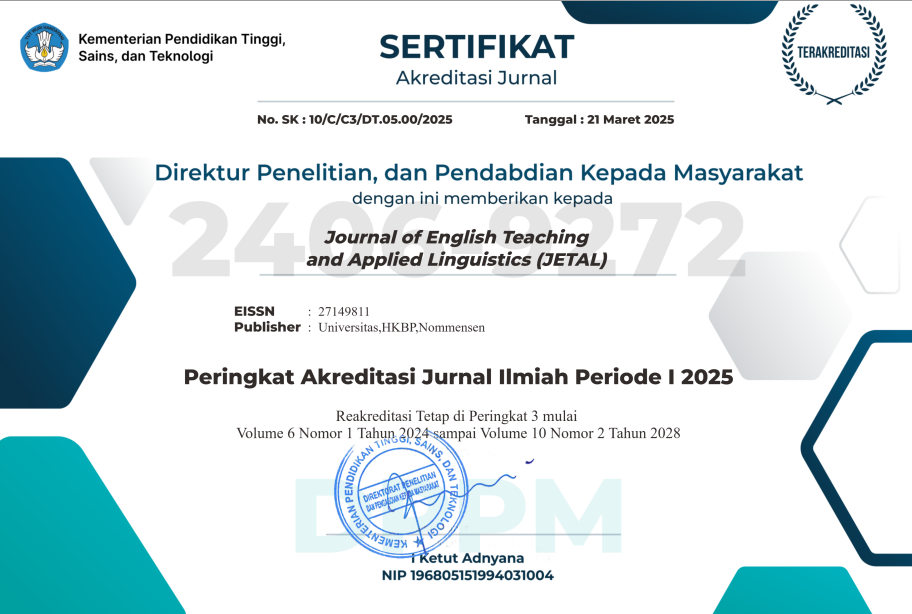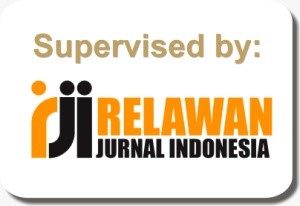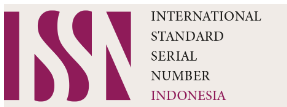STOP SAYING VERY: AN EXCEPTIONAL TEACHING STRATEGY TO ENHANCE STUDENTS’ VOCABULARY MASTERY
Abstract
This Classroom Action Research (henceforth, CAR) was primarily carried out to prove that the use of Stop saying very teaching strategy is effective to enhance the students’ vocabulary mastery on adjectives and to describe the students’ responses towards the learning teaching processes of adjectives through the application of Stop saying very teaching strategy. There are two cycles in this CAR in which each cycle consisted of three meetings excluded the pre-test, formative test, and post-test The research subjects of this CAR are the first semester students of the English Language Education, Faculty of Teachers Training and Education, Universitas Katolik Santo Thomas in the Academic Year of 2022/2023 consisting of 20 students. The analysis of quantitative data shows that the mean of the students’ score in the pre-test, formative test, and post-test increases continually after Stop saying very teaching strategy was implemented in teaching adjectives. The students’ total score in the pre-test is 216 and the pre-test mean is 10.8. The students’ total score in the formative test is 1.528 and the formative test mean is 76.4. The students’ total score in the post-test is 1.708 and the post-test mean is 85.4. The analysis of qualitative data shows that the students gave positive responses towards the learning teaching processes of adjectives through the application of Stop saying very teaching strategy. They all agree that the application of Stop saying very teaching strategy helps trigger their curiosity and enhance their knowledge and vocabulary mastery on adjectives. The writers recommend that English teachers/lecturers apply Stop saying very teaching strategy to teach better and more impressive adjectives to their students.
Keywords: adjectives, stop saying very, teaching strategy, vocabulary mastery
References
Barus, Y.K., Sari, A.S.P., and Tarigan, K.E. (2020). The use of Project Based Learning method to improve students’ skill in writing descriptive texts to the eleventh grade students of SMA Swasta Santa Maria Kabanjahe in the academic year of 2020/2021. Kairos English Language Teaching (ELT) Journal, 4(2), pp.92-105. DOI: https://doi.org/10.54367/kairos.v4i2.1139.
Br Pinem, N.S., Pangaribuan, J.J., and Sari, A.S.P. (2021). Enhancing students’ vocabulary mastery by applying Dictogloss technique to the eleventh grade students of SMA Deli Murni Bandar Baru in the academic year of 2020/2021. Kairos English Language Teaching (ELT) Journal, 5(1), pp.48-56. DOI: https://doi.org/10.54367/kairos.v5i1.1444.
Br S Meliala, L.N.B., Sari, A.S.P., and Tarigan, K.E. (2022). The application of Tiers words method in improving vocabulary mastery of the ninth grade students of SMP Swasta Anastasia. Kairos English Language Teaching (ELT) Journal, 6(2), pp.1-12.
Gulo, F.E., Sari, A.S.P., and Pangaribuan, J.J. (2018). Improving students’ speaking skill through Presentation, Practice, and Production (PPP) method to the eleventh grade students of SMA Swasta Katolik Budi Murni 2 Medan. Kairos English Language Teaching (ELT) Journal, 2(3), pp.179-187. DOI: https://doi.org/10.54367/kairos.v2i3.735.
Manullang, U., Lumban Raja, V., and Sari, A.S.P. (2018). Improving students’ vocabulary mastery through Crossword Puzzle game to the eighth grade students of SMP Swasta Dharma Bakti Medan. Kairos English Language Teaching (ELT) Journal, 2(2), pp.128-142. DOI: https://doi.org/10.54367/kairos.v2i2.729.
Metteal, G. (2001). The what, why, and how of classroom action research. Journal of Scholarship of Teaching and Learning (JoSoTL), 2(1), pp.6-13.
Napa, P.A. (1991). Vocabulary development skill. Yogyakarta: Kanisius.
Nauth, W.H. (1995). The world book encyclopedia. Chicago: World Book.
Resnick, L.B. (1989). Knowing learning and instruction. New Jersey: Lawrence Erlbaum.
Sari, A.S.P. (2016). Tionghoa students’ language attitudes toward the English language learning. Jurnal Ilmiah (Juril) AMIK MBP, IV(2), pp.37-50.
Sari, A.S.P., and Br Sembiring, R.K. (2019). Improving students’ speaking skill through the combination of Presentation, Practice, and Production (PPP) method and Talking Stick method. Jurnal LINER (Language Intelligence and Educational Research), 2(3), pp.68-76.
Sari, A.S.P., and Br Sembiring, R.K. (2019). Improving students’ English speaking skill through the implementation of Talking Stick method to the fifth grade students of State Primary School 028226 Binjai. Budapest International Research and Critics in Linguistics and Education (BirLE) Journal, 2(4), pp.507-513. DOI: https://doi.org/10.33258/birle.v2i4.552.
Sari, A.S.P., and Pandiangan, S.R. (2021). The application of Guessing strategy to improve students’ vocabulary mastery on English phrasal verbs. Jurnal Suluh Pendidikan (JSP), 9(1), pp.24-38. DOI: https://doi.org/10.36655/jsp.v9i1.524.
Sari, A.S.P., and Pangaribuan, J.J. (2018). The combination of Task-Based Learning (TBL) approach and audio-visual aids to improve students’ academic writing skills. Jurnal LINER (Language Intelligence and Educational Research), 1(3), pp.16-28.
Sari, A.S.P., and Pangaribuan, J.J. (2018). The application of Task-Based Learning (TBL) approach to improve students’ academic writing skill. Jurnal Education and Development, 6(2), pp.61-69. DOI: https://doi.org/10.37081/ed.v6i2.710.
Sari, A.S.P., Sembiring, N., and Wau, K. (2022). Improving students’ vocabulary mastery on synonyms through the application of Think Pair Share (TPS) technique. Budapest International Research and Critics Institute-Journal (BIRCI-Journal), 5(2), pp.16466-16475. DOI: https://doi.org/10.33258/birci.v5i2.5561.
Sinaga, P.D., Sari, A.S.P., and Sembiring, N. (2021). The use of digital storytelling to enhance the speaking skill of the eleventh grade students of SMA Swasta Palapa Medan in the academic year of 2020/2021. Kairos English Language Teaching (ELT) Journal, 5(1), pp.25-34. DOI: https://doi.org/10.54367/kairos.v5i1.1442.
Sinurat, T.M., Sari, A.S.P., and Sembiring, N. (2017). Improving students’ reading comprehension of the twelfth grade students of SMA Negeri 1 Batang Kuis through Group Investigation method. Kairos English Language Teaching (ELT) Journal, 1(2), pp.22-34. DOI: https://doi.org/10.54367/kairos.v1i2.501.
Stuart, W. (2005-2008). Receptive and productive vocabulary. Studies in Second Language Acquisition, 3(1), 7-95.
Tamba, N., Ginting, F.Y.A., and Sari, A.S.P. (2022). Improving students’ vocabulary mastery through the application of Word Wall strategy to the tenth grade students of SMA GKPI Pamen Medan. Kairos English Language Teaching (ELT) Journal, 6(1), pp.47-57. DOI: https://doi.org/10.54367/kairos.v6i1.
Turnip, M.C., Rumapea, L., and Sari, A.S.P. (2017). Improving students’ vocabulary mastery by using pictures media to the seventh grade students of SMP Negeri 21 Medan. Kairos English Language Teaching (ELT) Journal, 1(3), pp.103-116. DOI: https://doi.org/10.54367/kairos.v1i3.716.
Authors retain copyright and grant the journal right of first publication with the work simultaneously licensed under a Creative Commons Attribution-ShareAlike 4.0 International License (CC BY-SA 4.0) that allows others to share the work with an acknowledgment of the work's authorship and initial publication in this journal.
Authors are able to enter into separate, additional contractual arrangements for the non-exclusive distribution of the journal's published version of the work (e.g., post it to an institutional repository or publish it in a book), with an acknowledgment of its initial publication in this journal.
Authors are permitted and encouraged to post their work online (e.g., in institutional repositories or on their website) prior to and during the submission process, as it can lead to productive exchanges, as well as earlier and greater citation of published work (See The Effect of Open Access).






